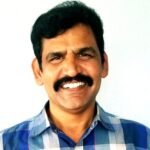
“People who live in the past generally are afraid to compete in the present. I’ve got my faults, but living in the past is not one of them. There’s no future in it” says Sparky Anderson. Our past is a very important part of our lives there is no way we can fully detach ourselves from our past, no matter how bitter or horrible our past was. In a sense our present is shaped by our past; however that does not mean that our past should rule or dictate our present and our future.
Life is an amazing journey. As we move forward in this journey, each day which we call “today” will soon become a day of past, a day which can only be looked back to but can never be entered or experienced again. Our past is gone and is over, there is no way we can enter our past either to re-live the experiences or to rectify our mistakes. Our past is gone forever, but it often leaves memories that are sometimes permanent in our life.
In a sense our present is shaped by our past; however that does not mean that our past should rule or dictate our present and our future.
Almost all of us have both happy and painful memories from our past. It is a wonderful blessing to look back and be able to cherish some of those pleasant memories, however not every memory of the past is pleasant, some of us have very bitter and painful memories from our past that could bother us every day of our present life. In fact some past failures or memories of the failures have the potential to cripple our present life and destroy our future opportunities.
You can clutch the past so tightly to your chest that it leaves your arms too full to embrace the present.?
Forgetting our past (especially the painful hurts or failures) is not as easy as people think. However, that does not give us an excuse to be stuck in the past. All of us make mistakes, whether it’s conscious or unconscious, intentional or unintentional, our poor decisions, judgments and actions have the potential to become a lifelong burden. Sometimes it does not even matter why and under what circumstances we did it, the fact that we did something can haunt us our whole life.
Our past is a great teacher, it is an important part of who and what we are, yet we should never let the past failures define or dictate our future. The French philosopher Gaston Bachelard says “One must always maintain one’s connection to the past and yet ceaselessly pull away from it”. If we do not intentionally pull away from our past, it is easy for us to be stuck in our past either wallowing in self-pity or angry at others. Jan Gildewell says “You can clutch the past so tightly to your chest that it leaves your arms too full to embrace the present”.
People make mistakes; that should not surprise us because that is part of how we learn, develop and grow, it’s not the falling that makes us a failure, it’s our unwillingness or inability to get up and start walking that destines us as failure. The Bible is full of heroes who made mistakes, yet did not let their past cripple their future potential. General Colin Powell discovered that he made a speech to the UN based on wrong information, he was very disappointed with his speech and wished it never happened, but instead of being chained to the past he told an interviewer that he chose to “focus on the front windshield and not the rearview mirror” of life. May be it is needless to mention that the reason why the front windshields are much bigger than the rearview mirror is because to move forward in the road of life we need a much bigger view of where we are going rather than where we have been. It’s OK to look into your rearview mirror once in a while, but if that is the only mirror you are always looking at, you can be sure your journey will not be long. It’s true that we cannot go back and change our past, but we can always start from now and move toward a brand new destination as we focus on the front windshield.
May be it is needless to mention that the reason why the front windshields are much bigger than the rearview mirror is because to move forward in the road of life we need a much bigger view of where we are going rather than where we have been.
– – Author: Rev. Francis Burgula – –
